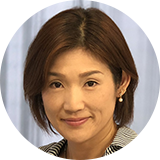Kumasaka Sakura isn't your typical sixth grader. Her school was closed for the past few months because of the pandemic but instead of simply waiting for classes to resume, she and her mother Machiko were making face shields for medical workers. They are simple masks, crafted from materials bought at a hundred-yen shop, but they make a big difference for the doctors and nurses on the frontlines of the battle against the coronavirus.
When cases started to surge in March and April, medical workers around Japan faced supply shortages. Machiko heard a firsthand account of the difficult circumstances from her brother, who is a doctor. He said nurses, who were already exhausted from helping patients, had to go home after work and make face shields to protect themselves. He wondered if people who were staying at home, such as schoolchildren, could help out.
That was all Sakura and Machiko needed to hear. They got to work and made 120 shields in just five days, delivering them to the hospital where Sakura was born.
There they found that the need for the shields was much greater than they had imagined. So they called on Sakura's classmates for help. They made a video tutorial of how to make the shields and sent it around via email and social media. It spread quickly and soon they were able to start the "Kids' Shield Support" project. About 100 people have taken part so far.
Since they are unable to meet up in person, the children have used video conferencing to hold shield-making sessions. The masks include special messages for the medical workers, such as "Thank you for saving lives" and "We're supporting you from home."

Once the kids finish their shields, they leave them in a box outside of the Kumasaka house.
"Medical workers are risking their lives," said Jimbo Maya, a friend of Sakura's who took part in the project. "When I give them these shields, I'm also giving them my thanks."
So far, the children have made about 3,800 shields. Sakura and Machiko have sent them to 20 hospitals and local governments around the country. The medical workers who received them have expressed gratitude, saying the personal messages give them the energy to continue working.

"I've learned that there are many ways to help people, even those I have never met before," said Sakura. "I want to continue doing this sort of work for the rest of my life."
Machiko says she has been surprised by how much her daughter and her friends have grown during their time away from school. She says she hopes the experience has shown them the importance of working together, and will help them overcome difficulties in the future.
Schools have reopened and children are back in the classroom. The peak of the medical supplies shortage has passed, but the Kumasakas say small hospitals and elderly care facilities around the country still need their help. And Sakura says she will continue to contribute, as long as there's a need, to the fight against the virus.

